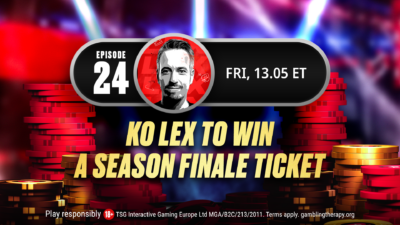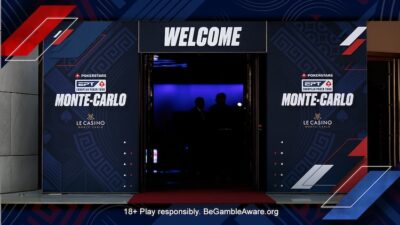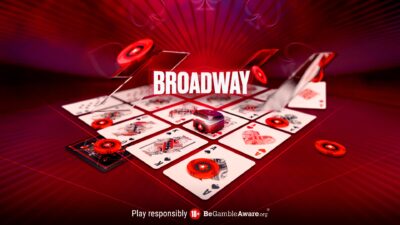

by Adam “STUDstood” Roberts
Danny Robison is now in his early 60s. He is a fixture in the $2000/$4000 limit Stud game at the Hustler Casino in Los Angeles. But in 1989, he had just returned from a self-imposed five-year hiatus from poker.
Although I had heard people talk about him while playing in the Rounders game in Manhattan and the $30/$60 limit Stud games in both Las Vegas and Los Angeles, I had never actually seen him play either as a spectator or an opponent. That happened in the summer of 1990 at the Bicycle Club in Los Angeles.
I have mentioned Danny in a number of past blogs, so I will not labor on his history any further. What I want to cover here is that everything I learned from Danny was picked up without his knowledge. Although Danny and I became friends and socialized together, we never discussed poker strategy.
Everything about poker that I learned from Danny I learned as I watched and studied his actions on the table. When you’re fortunate enough to play with a true master of the game, it should always be looked at as an opportunity to learn. Even with all of the great teachers and mentors I have had through the years, I would say that I picked up more from Danny without him even knowing, than I did from people who intentionally taught me things.
Case in point… Early that summer, I still had not officially met Danny. I was at the Bicycle Club waiting to get into a $75/$150 game and sitting at an empty table reading a Card Player magazine.
At an adjacent empty table, Danny and another Stud player (who I later realized was also an excellent player) named Tony Latorre (now deceased) were discussing strategy.
Although I was trying to mind my own business, any of you who know these guys realize that they are LOUD, even when not trying to be. So, I could not help but overhear their conversation. They were discussing a certain 4th street strategy in Stud poker.
At first, I thought that they were joking. I say that because what they were saying made absolutely no sense to me. In fact, it seemed totally contradictory to what I would do in that same situation on 4th street (at that time in my career). Then I realized that they truly were serious, and I clearly recollect thinking that these guys were suckers.
But then I remembered that both these men were also considered great players, so I decided to not only listen, but try an experiment when I got back to my hotel room. I dealt out random cards for hours upon hours, over many days, to see if what they had been saying was correct, even though I had strong doubts. Of course not only were their concepts correct, but they were so advanced that I do not think many people to this day know about them or know how to correctly incorporate them.
What I am getting at here is that this same experience may very well happen to you, and you should be open to it when it does. Do not discount or underestimate the strategy and concepts of long-time winning players, even if those concepts seem wrong or foreign to you. Try them out; see if they are mathematically correct and if they might work for you.
Poker is an ongoing learning process; you should try different things out, to see if they fit with your personality, style of play, games you play, and your bankroll. (If a certain strategy is high risk/high reward, it may not be right for someone on a limited bankroll.)
With regards to learning from your peers, as the limits get higher, I think this might get tougher. I did it covertly with guys like Danny, Tony, Jack Weiss, Roy Whitaker, all players in that $75/$150 Stud game.
Very few people, especially the ones you compete against regularly, are willing to discuss strategy. But, there may be some who will. In my case, those guys were Ted Forrest, Bruce Migdal and Fast Eddie (who I knew from Brooklyn). Ted and I would have these long conversations about many different types of poker strategy. Listening to us would be funny because our views were so different on just about everything. Yet, we made them work for us.
Again, my point here is that keep an open mind, seek out as much information as possible in whatever venues you can find it. Then, don’t be afraid to try things out. Even if you fail, you should learn from the experience.
If you have the ability and good habits, many things will work out for you and your game will improve.
In the meantime, you can find me in the $10/$20 and $30/$60 limit games in our Stud section, as well as in our weekly $215 buy-in tournaments. Please check the starting times of each of those events for your geographic area under Tourney > Special in the PokerStars lobby.
Feel free to contact me with any questions, suggestions or thoughts at adamr@pokerstars.com. See you at the tables!
Back to Top






